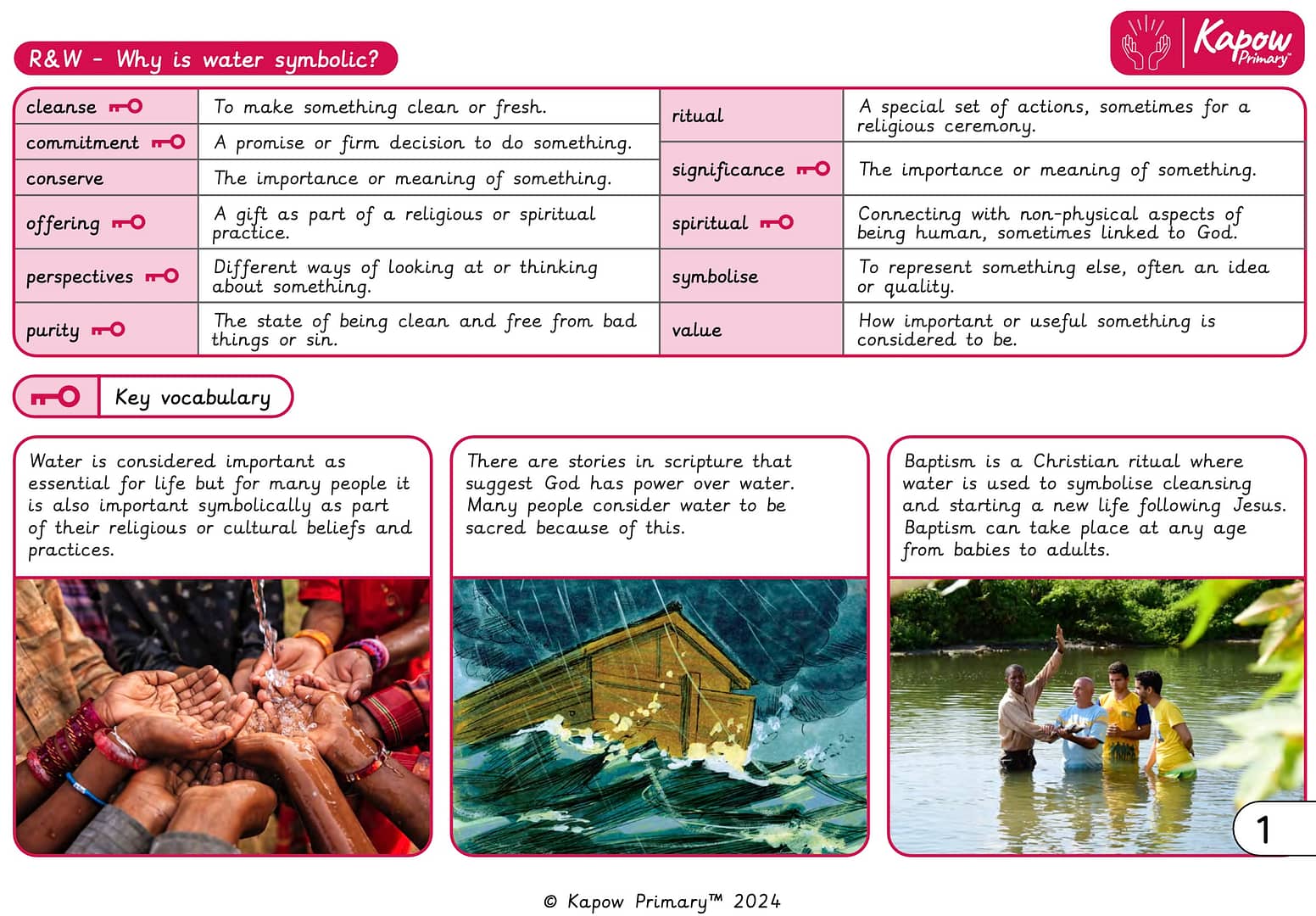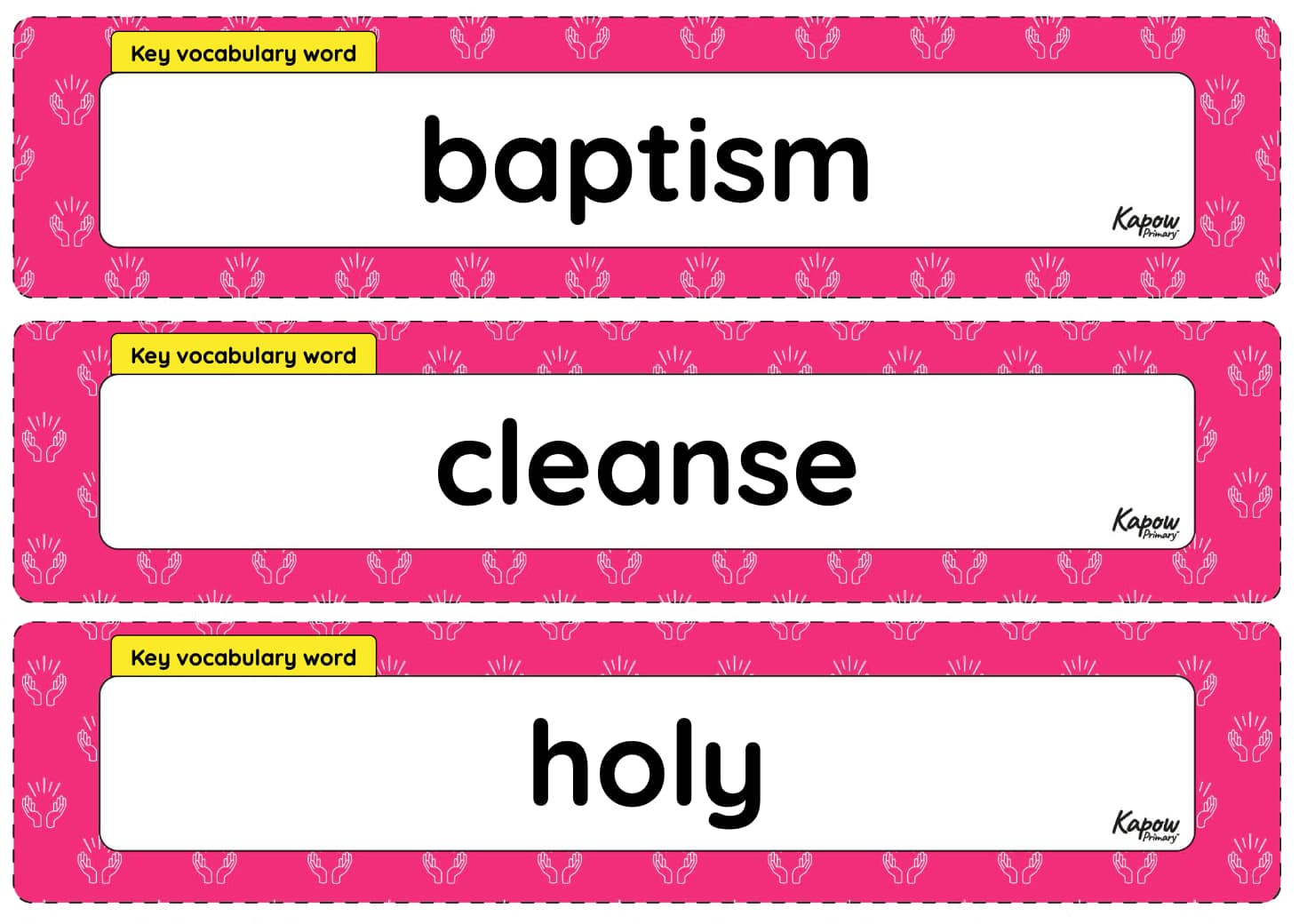*Updated* Why is water symbolic?
Looking at the many ways water is used in rituals and ceremonies, children experience its symbolic use.
- Subjects >
- Religion and worldviews >
- Lower key stage 2 >
- Year 3 >
-
*Updated* Why is water symbolic?
Unit outcomes
Pupils who are secure will be able to:
- Making connections between religious stories and the importance of water.
- Identifying how water is used in some rituals.
- Suggesting what water might symbolise.
- Making links between beliefs and actions.
- Talking about why some Christians choose to be baptised.
- Explaining water’s importance in religious and cultural contexts.
- Sharing thoughtful insights or reflections on water’s importance.
- Articulating their own ideas about the value of water creatively.
Suggested prior learning
Please note
Lessons and resources within this unit have been updated, focusing on pitch, lesson length and key vocabulary. The context, skills and knowledge covered and learning progression of the unit remain the same.
Lessons
Lesson 1: Why is water important?
- To explore how water is important to life practically and symbolically.
Lesson 2: How is water used in some rituals?
- To explore the significance of water in rituals.
Lesson 3: What can some religious stories suggest about water?
- To analyse the importance of water in some Christian, Jewish and Muslim stories.
Lesson 4: What is baptism?
- To investigate water’s symbolism and role in Christian baptism.
Lesson 5: How and why do some Hindus celebrate the River Ganges?
- To explore the significance of water at the Hindu Kumbh Mela festival.
Lesson 6: Why is water precious?
- To explore why water is considered precious by analysing quotes and actions.
Key skills
Related content
Unit resources

Knowledge organiser – R&W Y3: Why is water symbolic?
Aimed at pupils, a double page document that gives key facts and definitions from the 'Why is water symbolic?' unit.

Vocabulary display – R&W Y3: Why is water symbolic?
A display version of the vocabulary from the unit Why is water symbolic?
Cross-curricular opportunities
English: Writing composition; Spoken language; Reading – comprehension.
Science: Plants.
Geography: Human and physical geography.
RSE: Respectful relationships.
British values: Mutual respect; Tolerance of those with different faiths and beliefs.

